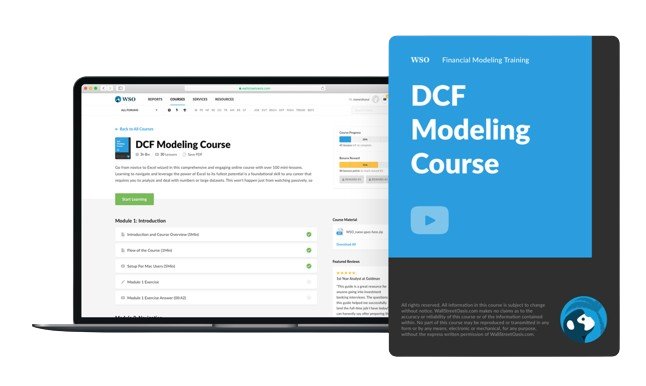Cash Consideration
Occurs when cash is used to purchase a company's outstanding shares during an asset purchase or Mergers and Acquisitions (M&A) deal.
What Is Cash Consideration?
Cash consideration occurs when cash is used to purchase a company's outstanding shares during an asset purchase or Mergers and Acquisitions (M&A) deal.
Shareholders usually prefer this transaction method, but there are also many other forms of consideration, such as issuing shares or debt instruments.
When is Cash Consideration Accepted? The cash consideration is more likely to be accepted by shareholders over other forms of payment during a competitive bidding process.
This is because cash does not affect the future performance of the new combined company.
Also, cash liquidity makes it an ideal form of investment for various transactions.
When shareholders are unsure about the feasibility of an M&A deal, the acquirer usually offers a premium price using cash only.
Key Takeaways
- Cash consideration involves using cash to purchase a company's outstanding shares during asset purchases or Mergers and Acquisitions (M&A) deals.
- Shareholders often prefer cash consideration in competitive bidding processes as it doesn't impact the future performance of the merged company and offers liquidity.
- In real estate transactions, cash consideration means using only cash for the purchase, which is preferred by sellers due to speed and lower risk compared to debt offers.
- In corporate acquisitions, cash consideration involves using cash to buy a majority or all of a company's shares, favored by sellers over debt financing.
- Alternatives to cash consideration in M&A transactions include stock-for-stock payments and debt financing, each with its own tax and financial considerations.
How Does Cash Consideration Work?
The acquirer offers a cash payment, and, in exchange, they receive an asset, a portion, or the entirety of a company. For it to be considered a cash consideration, the sole method of financing needs to be cash, not debt or shares.
Cash consideration can be used as payment for two types of transactions:
1. Real Estate
When buying real estate, the buyer can offer cash consideration as the only form of payment for the deal.
This means the transaction will not include other forms of financing, such as debt financing or a mortgage. Usually, sellers are more likely to accept all-cash payments for real estate deals, even if they're priced less than a competitor's debt offer.
This is due to the cash liquidity; the deal will close quickly and pose fewer risks. A mortgage-contingent offer is vulnerable to delays and denials.
2. Corporate Acquisition
In corporate acquisitions, the buyer can offer cash consideration as the only form of payment for the deal. The acquirer will not provide equity or debt to finance the transaction.
It will then use this cash to purchase a majority, if not all, of the company's shares. During corporate acquisitions, sellers also prefer cash deals compared to debt financing.
Limitations of Cash Consideration
Shareholders receiving all-cash deals will need to consider the tax consequence of the transaction.
- Cash payments, like the sale of shares, are subject to taxation, resulting in a loss of earnings for the seller.
- However, it is not taxable when shares are sold in a stock-for-stock transaction. Therefore, shareholders are better off with a stock-for-stock trade than a cash consideration.
- Draining a company's cash supply to facilitate an agreement is also a risky maneuver. If you have a lot of free cash available, it might be worthwhile to use cash consideration.
- It might be wise not to use all your cash reserves if you're planning on funding projects in the future or if your company is facing economic or financial uncertainty.
- When using cash funds, companies must consider multiple metrics and factors to ensure their company stays afloat.These include the cost of
- Capital
- Capital structure
- Credit ratios
- Credit ratings
Alternatives to Cash Consideration
Aside from a cash transaction, there are two other forms of financing for mergers & acquisitions (M&As):
1. Acquisition with stock
The acquirer can choose a stock-for-stock payment in which they exchange shares in their own company for shares in the seller's company.
A set number of shares of one company is offered to the other, and the exchange is often unequal.
For example, the acquirer often exchanges stocks based on a set ratio. For example, the acquirer may give one share and take three seller shares in return.
This is a 1-for-3 stock acquisition and is expected in the business world.
Shareholders may prefer this type of payment since they do not pay taxes on the gains of their transaction. This is a viable option if the seller has a strong equity profile.
Tax is not paid on the gains of the transaction, but tax is paid on the profits earned when the shareholder decides to dispose of their stake.
Making a stock-for-stock offer means you forsake the liquidity of an all-cash deal.
2. Paying with debt
Buyers can also use debt financing as a form of payment during M&A transactions. Taxes are paid on debt financing, as the seller still receives cash.
There are multiple ways to raise money through debt financing, including issuing fixed-income securities and raising money through loans.
Corporations sell bonds, notes, and bills to investors in return for interest payments in the future.
During low-interest rates, debt is a cheaper financing source than equity (stock).
It is up to the seller to assess if the buyer has a stable financial condition to pay off the debt in the future and not go bankrupt. In the case of bankruptcy, the sellers are only paid after the other senior debtholders have been paid.
Researched and authored by Hardip Kooner
Reviewed and edited by James Fazeli-Sinaki | LinkedIn
Free Resources
To continue learning and advancing your career, check out these additional helpful WSO resources:










or Want to Sign up with your social account?